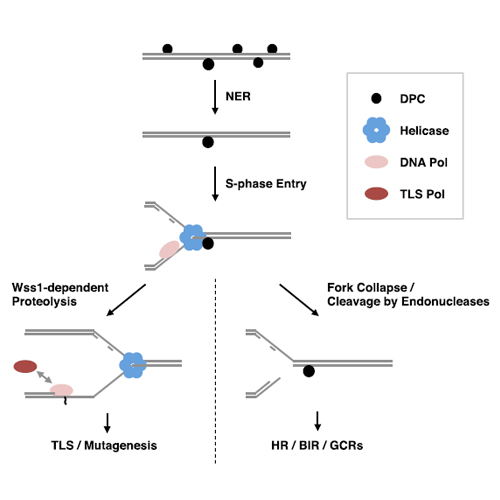A DNA-Dependent Protease Involved in DNA-Protein Crosslink Repair
03-Jul-2014
Cell, 2014, DOI: http://dx.doi.org/10.1016/j.cell.2014.04.053, published on 03.07.2014
Cell, online article
Cell, online article
Toxic DNA-protein crosslinks (DPCs) arise by ionizing irradiation and UV light, are particularly caused by endogenously produced reactive compounds such as formaldehyde, and also occur during compromised topoisomerase action. Although nucleotide excision repair and homologous recombination contribute to cell survival upon DPCs, hardly anything is known about mechanisms that target the protein component of DPCs directly. Here, we identify the metalloprotease Wss1 as being crucial for cell survival upon exposure to formaldehyde and topoisomerase 1-dependent DNA damage. Yeast mutants lacking Wss1 accumulate DPCs and exhibit gross chromosomal rearrangements. Notably, in vitro assays indicate that substrates such as topoisomerase 1 are processed by the metalloprotease directly and in a DNA-dependent manner. Thus, our data suggest that Wss1 contributes to survival of DPC-harboring cells by acting on DPCs proteolytically. We propose that DPC proteolysis enables repair of these unique lesions via downstream canonical DNA repair pathways.











